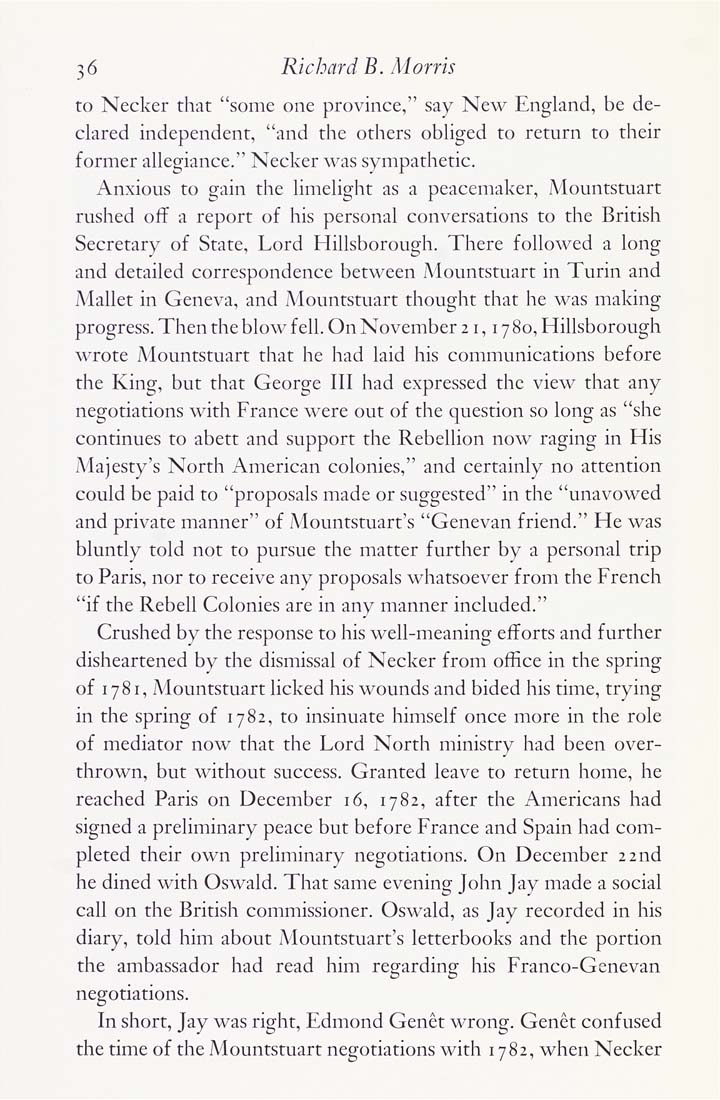Columbia Library columns (v.23(1973Nov-1974May))
(New York : Friends of the Columbia Libraries. )
|
||
|
|
|
|
| v.23,no.2(1974:Feb): Page 36 |

36 Richard B. Morris to Necker that "some one province," say New England, be de¬ clared independent, "and the others obliged to return to their former allegiance." Necker was sympathetic. Anxious to gain the limelight as a peacemaker, Mountstuart rushed off a report of his personal conversations to the British Secretary of State, Lord Hillsborough. There followed a long and detailed correspondence between Mountstuart in Turin and iMaUet in Geneva, and Mountstuart thought that he was making progress. Then the blow fell. On November 21, 1780, Hillsborough wrote iMountstuart that he had laid his communications before the King, but that George III had expressed the view that any negotiations with France were out of the question so long as "she continues to abett and support the Rebellion now raging in His Majesty's North American colonies," and certainly no attention could be paid to "proposals made or suggested" in the "unavowed and private manner" of Momitstuart's "Genevan friend." He was bluntly told not to pursue the matter further by a personal trip to Paris, nor to receive any proposals whatsoever from the French "if the Rebell Colonies are in any manner included." Crushed by the response to his well-meaning efforts and further disheartened by the dismissal of Necker from office in the spring of 17 81, Af ountstuart licked his wounds and bided his time, trying in the spring of 1782, to insinuate himself once more in the role of mediator now that the Lord North ministry had been over¬ thrown, but without success. Granted leave to return home, he reached Paris on December 16, 1782, after the Americans had signed a preliminary peace but before France and Spain had com¬ pleted their own preliminary negotiations. On December 22nd he dined with Oswald. That same evening John Jay made a social call on the British commissioner. Oswald, as Jay recorded in his diary, told him about Mountstuart's letterbooks and the portion the ambassador had read him regarding his Franco-Genevan negotiations. In short. Jay was right, Edmond Genet wrong. Genet confused the time of the iMountstuart negotiations with 1782, when Necker |
| v.23,no.2(1974:Feb): Page 36 |







